

Tao Te Ching

Epicureanism (Επικουρισμό) Lineage
Epicureanism - 307 BCE - c. 340 CE, revived in the 17th century and continuing today
Teaching that the purpose of life is finding happiness by limiting desires and prejudice, living a simple life, and understanding the nature of the universe; Epicureanism decried superstition and beliefs while fostering equality, freedom, and philosophy to free us from fear and suffering, to guide us to happiness. Epicurus lived and taught this philosophy with simplicity, restraint, and humility but his followers quickly seemed to pervert his teachings about the pursuit of happiness corrupting it into the pursuit of pleasure. This set the foundation though for Zeno’s Stoicism and Pyrrho’s Skepticism.
People (21)
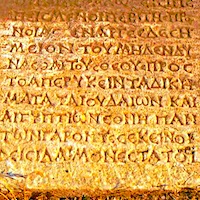
Diogenes of Oenoanda Διογένης ὁ Οἰνοανδεύς
77 – 142 CE
Great Preserver of Epicureanism
Not much is known about Diogenes' life other than that he had a summary of Epicurus' philosophy carved onto a 2.37 x 80 meter wall. Originally taking up 260 square meters of wall space and including c. 25,000 words, now only about a third of it remains. That was enough though however to preserve a good sense of Epicurus' teaching on ethics, physics, and other fields. A close disciple, Diogenes felt that these teachings helped him immensely and he wanted to assure their survival and the ease for as many as possible to read them.
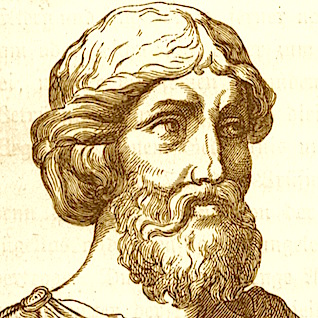
Epicurus ɛpɪˈkjɔːrəs
341 – 270 BCE
Western Buddha
Author of 300 lost books, a huge influence on western philosophy through Schopenhauer, Nietzsche, Karl Marx, David Hume, and inspiration for Thomas Jefferson’s “all men are created equal and endowed with certain unalienable rights, such as life, liberty, and the pursuit of happiness;” Epicurus blended the wisdom of pleasure with the pleasure of wisdom (Durant) and fostered equality and freedom welcoming into his school without prejudice slaves, different races, women, and courtesans. “Unsurpassably kind” to everyone, with many parallels to Lao Tzu, Epicurus taught that the purpose of philosophy is to free us from fear and suffering, to guide us to happiness.

Leontium Λεόντιον (Leontion)
fl. 300 BCE
Philosopher, courtesan and mistress to Epicurus; Leontium had a child with him, helped develop his Epicurean philosophy, and wrote several books. Praised by Epicurus for the clarity of her philosophy and writings, she encouraged his policy of letting women and slaves attend his classes, and was a scandal to philosophers like Leontium and Pliny for - as a woman and prostitute - writing an erudite and devastating criticism of famous philosophers like Theophrastus. Barely mentioned in history and mainly by Epicurean critics who blamed her for her influence on ideas they disagreed with, Leontium helped create a more open and happy world.
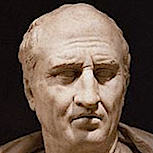
Philodemus Φιλόδημος (of Gadara)
110 – 35 BCE
Innovative philosopher-poet, student of Epicures and Zeno, first generation Epicurean, praised by Cicero, and a big influence on Horace; Philodemus was originally most well known for his poetry. However since 1738 when the ancient papyrus scrolls of Herculaneum were discovered under lava flows from Mt. Vesuvius that also destroyed Pompeii and with the help of x-rays and computers in recent years, his influence was discovered to extend to music, history, ethics and theology.
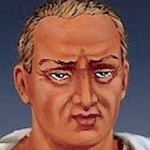
Cicero
106 – 43 BCE
One of Rome's greatest orators and writers with an immense influence on European languages greater than any other writer in history, Cicero introduced Greek philosophy and as a ground-breaking translator invented new Latin terms for philosophical concepts. His rediscovery sparked both the 14th Renaissance and the 18th century Enlightenment. Refusing an invitation for highest office from Julius Caesar, he championed democracy, fought against dictatorship and for these reasons was killed by Mark Antony. He inspired both the American and French Revolutions as well as everything from Jefferson’s writing of the Declaration of Independence to Copernicus placing the sun rather than the earth at the center of our solar system.
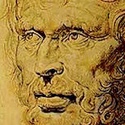
Lucretius (Titus Carus)
99 – 55 BCE
The greatest Western philosophical poet, a complete evolutionist, writer of the “loftiest poetry that any age has known” and the “most marvelous performance in all antique literature” (Durant); Lucretius described religion, the universe, and medicine from a rational point of view without superstition, faith, or dogma. An Epicurean with allegiance to only Venus and the power of love, he left behind all other gods and proposed a scientific understanding of the world including atomic theory and evolution. A huge influence on ancient times, people like Virgil and Horace; he also inspired Enlightenment era people, humanism, Thomas Jefferson and modern psychology.
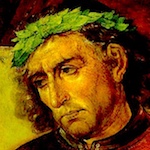
Virgil (Publius Vergilius Maro)
70 – 19 BCE
“The most lovable of Romans” and its greatest poet, advocate/inspiration/teacher for small farmers, Dante's guide through hell and purgatory, considered a great magician, seer, and saint as well as the embodiment of human knowledge and experience; Virgil began life as a poor farmer and once had to swim for his life to escape soldiers. Given patronage by Augustus he wrote the Aeneid that became the Roman national epic and standard text for school curricula after Augustus refused Virgil’s dying wish to have it burned. For hundreds of years his poems were opened at random as an oracle for insight into uncertainty and to solve problems.

Horace
65 – 8 BCE
One of the most famous Roman poets during his time and still considered one of the best from any time, Horace also became a spokesman for the Caesars during Rome’s change from Republic to Empire. A continuing aspect of Western education until our own times, he influenced Milton, Byron, Keats, Wordsworth, Omar Khayyam, Kipling, Robert Frost and most Western poets. The insight and wisdom condensed in his famous phrases like “carpe diem“ vividly live in our own culture more than 2000 years after his time.
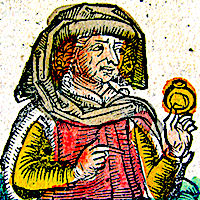
Ovid oʊvɪd (Publius Ovidius Naso)
43 BCE – 18 CE
Great poet and major influence on the Renaissance, Humanism, and world literature
Roman poet, inspiration for Renaissance humanism, consummate love elegist, and a tremendous influence on both Western literature and art; Ovid was staggeringly popular during his own time, during the Middle Ages, during the Renaissance, and still in our own time today. Fashioning himself as a love doctor, he wrote a 3-volume treatise called The Art of Love complete with instructional images and poetry about oral sex pleasure. It begins with teaching men how to best find a lover, seduce them, and later hide affairs. It continues with advice for women on how to avoid the traps and deceptions he has taught men. This also became immensely popular but his popularity didn’t serve him well politically. Emperor Augustus exiled him to a remote, harsh location where his friends avoided him and he remained until he died 9 years later.

Epictetus Ἐπίκτητος
55 – 135 CE
Born a slave, Epictetus found freedom and—until he was banished in 93 CE—taught philosophy in Rome as a way of life. He taught that the foundation of all philosophy is self-knowledge, that we all have basic goodness, and that we are not separate but interconnected and one with each other and all of the world. His influence extends from Marcus Aurelius to medal-of-honor winning US vice-presidential candidate James Stockdale and includes artists like James Joyce, Tom Wolfe, David Mamet and J.D. Salinger.
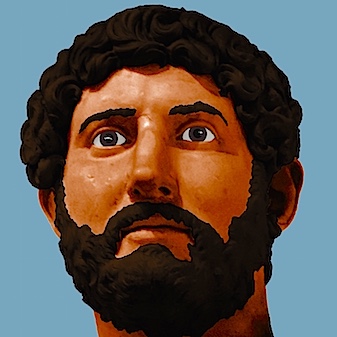
Hadrian
76 – 180 CE
Pillar of the golden age of Rome, Hadrian hated war and loved philosophy, literature, and the arts. He prevented corruption, favored the poor over the rich, and governed this empire better than any time before or since. Gibbon called this period of time “the only period in history in which the happiness of a great people was the sole object of government.” He carefully listened to complaints and suggestions later securing the reigns of his successors, Titus and Marcus Aurelius - administrations called by Will Durant “among the most beneficent in history.” He rebuilt the Pantheon in a new style copied by St. Peter’s Basilica and the U.S. Capitol in Washington, D.C.
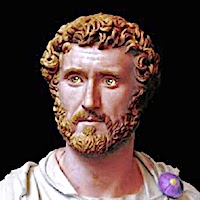
Antoninus Pius (Antonines)
86 – 161 CE
One of history's most enlightened, major political leaders
One of the best political leaders of all time, Antoninus began his reign by giving the country an immense amount of his personal fortune. Religious but free of superstition, he encouraged the tolerance of Jews, Christians, freed slaves, and other non-Roman religions. He brought Rome to its apex of prosperity and peace giving the Empire its most equitable period of all time. He liberalized the law, initiated the rights of defendants in trials still used today, told judges to treat defendants as innocent until proven guilty, enforced more equality between men and women, and never made decisions without working on consensus with the Senate. With virtually no enemies and hundreds of friends, he was immune to flattery and was so modest that it was impossible to tell he was emperor by just observing his behavior.
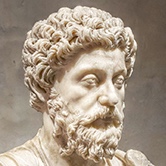
Marcus Aurelius
121 – 219 CE
One of the most important Stoic philosophers and last of the "Five Good Emperors,” during a time Gibbon described as, a period when "the Roman Empire was governed… under the guidance of wisdom and virtue.” He was known as a philosopher king and by many as the only Roman emperor who not only spoke and knew wisdom but also lived it. His book, Meditations describes setting up a just government of service and duty and was a favorite of leaders and philosophers from Frederick the Great to John Stuart Mill, from Goethe to Chinese Premier Wen Jiabao, and US president Bill Clinton.
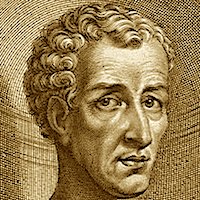
Lucian of Samosata
125 – 180 CE
Monumental influence on western literature.
Syrian satirist, Roman rhetorician, Egyptian official, traveling teacher, and prolific, popular author; Lucian used sarcasm, irony, and humor to make fun of philosophical schools, superstition, religious practices, plutocracy, and paranormal beliefs. His writings include the first science fiction, A True Story (complete with journeys to the moon and to Venus, extraterrestrials, artificial life, and interplanetary warfare), the oldest known version of "The Sorcerer's Apprentice,” and his invention of the comic dialogue genre in his parodies on the Platonic dialogue. Depicted in a Byzantine encyclopedia as burning in hell because of his criticism of Christianity, he became a monumental influence on western literature. His books inspired Shakespeare's Timon of Athens and Hamlet, Swift's Gulliver's Travels, Erasmus's Encomium Moriae, Thomas More's Utopia as well as Botticelli's paintings. His influence extends through the ages by way of Voltaire, Diderot, Cyrano de Bergerac, Jules Verne, David Hume, Henry Fielding, and many more.
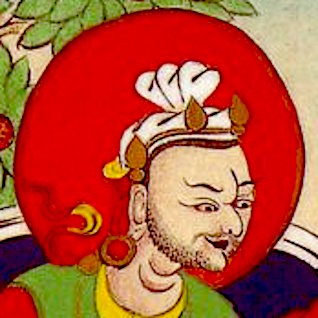
Lilapa སྒེག་པ། (“Master of Play”)
8th century CE
Mahasiddha #2
“He Who Loved the Dance of Life,” Lilapa was a king who wanted to become enlightened but didn’t want to leave the luxury and privilege of his kingdom. A wandering yogin gave him practices he could do surrounded by his riches, power, musicians, and wives. He devotedly practiced, attained realization, and became famous for his philanthropy and kind goodness. Like Epicurus in the West, Lilapa taught and exemplified how spiritual realization doesn’t depend on asceticism, rigid discipline, and self-denial but harmonizes more with appreciation, cheerfulness and respect.

Montaigne
1533 – 1592 CE
Grandfather of the Enlightenment
Son of a fish-seller, grandfather of the Enlightenment, “the first modern man,” statesman, author, apostle of doubt and moderation, Renaissance author most in harmony with the modern mind; Montaigne wrote some of history’s most influential essays. A master story-teller balancing philosophy with personal anecdote, deep insight with entertainment, wisdom and humor; he built on Lucretius and had a direct influence on Francis Bacon, Descartes, Pascal, Rousseau, Emerson, Nietzsche, and Shakespeare. “The most pagan of Christians,” called “the wisest Frenchman that ever lived,” he is still “read today as if he had written yesterday
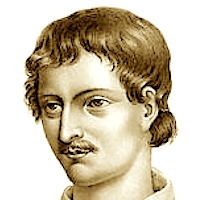
Giordano Bruno
1548 – 1600 CE
Giordano Bruno (1548 – 1600)
Like Galileo, a "martyr of science," Dominican friar, Epicurean poet, cosmological mathematician; Bruno fled his monastery and wandered through France and Italy teaching. Burned at the stake by the Roman Inquisition for his scientific, pantheistic, and Epicurean views; Bruno first described stars as distant suns with planets of their own, championed the Copernican view that the earth is not the center of the universe, and taught the dangerous view that likewise people and our civilizations are not the center of the cosmos but only a tiny part of something much larger. This led to an 8-year trial, his torture and death but also a strong foundation for the newly emerging sciences and the openness to free thought.

Francis Bacon
1561 – 1626 CE
“Father of the scientific method,” Lord Chancellor of England, orator, jurist, and philosopher; Francis Bacon represents a huge step in the evolution of consciousness but not before indulging in a sybaritic lifestyle, being charged with 23 cases of corruption, being banned from Parliament and imprisoned in the Tower of London. In his ex-con life, he undermined the strength of religion, railed against tradition and authority, became “the most powerful and influential intellect of his time,” warned of the rich getting too rich as a cause of social disease and revolt, the likelihood of new inventions causing more harm than help, and championed the rise of reason and science that brought about our modern world.
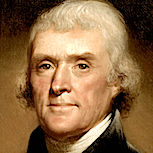
Thomas Jefferson
1743 – 1826 CE
American founding father, main author of the Declaration of Independence, Virginia governor, first Secretary of State, US Vice President and one of America’s greatest presidents; Jefferson negotiated the Louisiana Purchase almost doubling the size of the country and wrote a book considered the most important American one written before 1800. President of the American Philosophical Society, mathematician, architect/designer of the Virginia State Capitol and Monticello, University of Virginia founder, avid horticulturalist and farmer, naturalist deeply interested in birds, inventor of an important new plow design as well as the swivel chair, and speaker of more than 8 languages; he exemplified the ideal of a true Renaissance Man. Although he owned hundreds of slaves, as a young lawyer he defended freedom-seeking slaves, signed an act prohibiting their importation in 1807, and is believed to have secretly “married” and had children with a black woman, Sally Hemings. Always in debt with cash flow problems from continual experiments and pushing on the boundaries of the possible, his creative spirit never died.
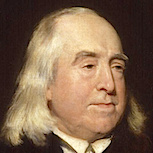
Jeremy Bentham
1748 – 1832 CE
Jeremy Bentham (1748 - 1832)
“The first patron saint of animal rights,” founder of modern utilitarianism, philosopher, and social reformer; Bentham defined “the greatest happiness of the greatest number” as a political strategy and brought the idea of welfare into modern government. A strong voice for individual and economic freedom, he worked hard to end slavery, the death penalty, physical punishment, and was the first in England to argue for decriminalizing homosexuality. He promoted equal rights for women, universal education, the separation of church and state, and animal rights. His secretary was John Stuart Mill’s father and together they tested the limits of education.
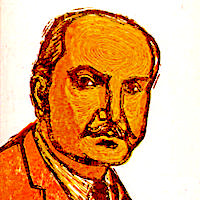
Santayana, George (Jorge Agustín Nicolás Ruiz de Santayana y Borrás)
1863 – 1952 CE
Powerfully influential, true-to-himself philosopher/poet
Poet first, philosopher second, novelist, Harvard dropped-out professor, Christian-atheist, free-thinking cultural critic; Santayana mixed his poetic genius with deep, philosophic insights; beauty with truth. Born in Spain, he brought an old European flavor and aristocratic appreciation to his new but temporary American homeland saturated with the idealism and individualism of Emerson and Thoreau. Many of his aphorisms have progressed from words of wisdom to cliché to truism. ("Those who cannot remember the past are condemned to repeat it") Professor to students like T. S. Eliot, Robert Frost, Gertrude Stein, Walter Lippmann, W. E. B. Du Bois, Conrad Aiken, and Supreme Court Justice Felix Frankfurter; major influence on thought-leaders like Bertrand Russell and Alfred North Whitehead; Santayana’s influence on awakened evolution continues
Related Sources (1 sources)
De Rerum Natura (On the Nature of Things) by Lucretius
Quotes about the Epicureanism Lineage (6 quotes)

“Philosophy calls us when we reach the end of our rope.It's purpose to free us from the hold of our griefs and fears, to illuminate the ways our soul has been infected by unsound beliefs, untrained tumultuous desires, and dubious life choices; we become philosophers to discover what is really true and what only the accidental result of flawed reasoning.”
Comments: Click to comment

“There was an Epicurean vaunted, that divers of other sects of philosophers did after turn Epicureans, but there was never any Epicurean that turned to any other sect. Whereupon a philosopher that was of another sect, said; The reason was plain, for that cocks may be made capons, but capons could never be made cocks.”
Comments: Click to comment

“I too am an Epicurean. I consider the genuine (not imputed) doctrines of Epicurus as containing everything rational in moral philosophy which Greece and Rome have left us.”
Comments: Click to comment

“The greatest thought that mankind has ever hit upon? Lucretius' idea that all of life is the unending mutation of indestructible substances”
Comments: Click to comment
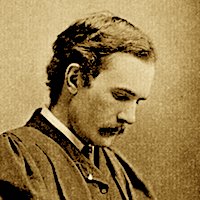
“The Epicurean was determined to make Humanity go its way without cringing to capricious gods and without sacrificing Free-Will. He condensed his gospel into four maxims: God is not to be feared; Death cannot be felt; the Good can be won; all that we dread can be borne and conquered.”
Comments: Click to comment
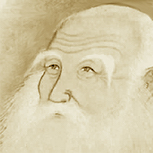 “Thomas Jefferson owned 5 Latin versions of De Rerum Natura as well as English, French and Italian translations. He said it was his favorite book and its main ideas infiltrated The Declaration of Independence—most notably that government should serve 'the pursuit of Happiness.' ”
“Thomas Jefferson owned 5 Latin versions of De Rerum Natura as well as English, French and Italian translations. He said it was his favorite book and its main ideas infiltrated The Declaration of Independence—most notably that government should serve 'the pursuit of Happiness.' ”
Comments: Click to comment
Comments (0)